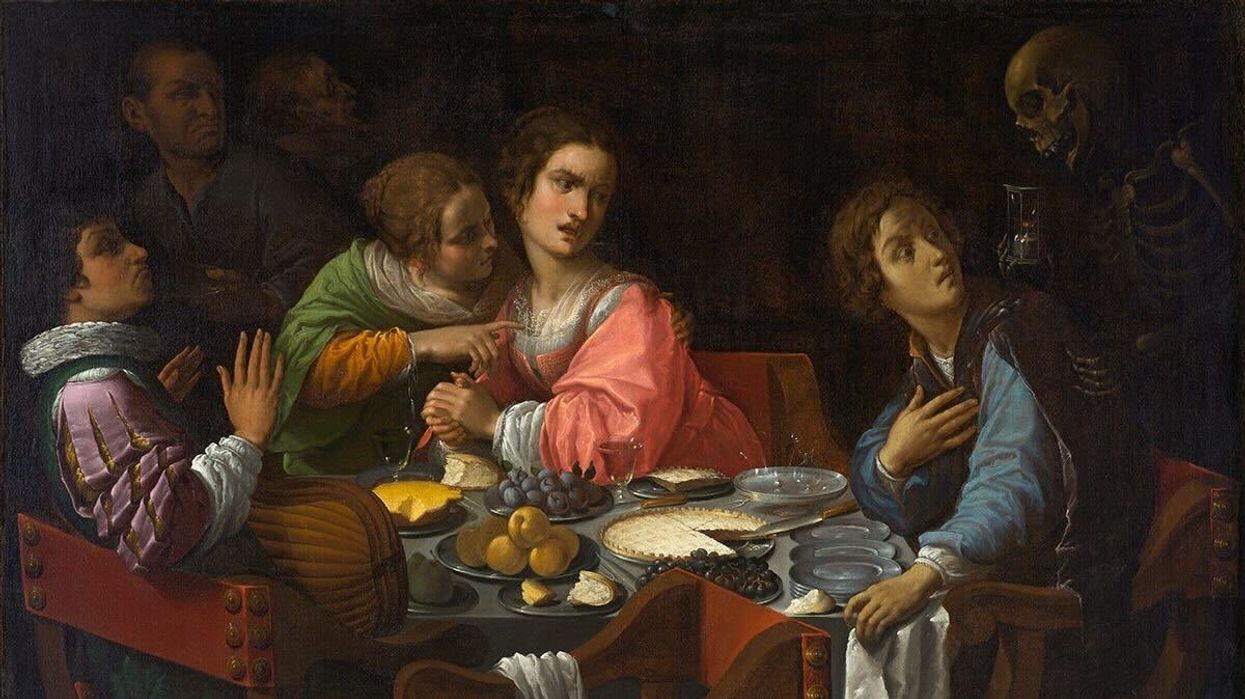Horror movies hit different when you're a mom

I used to enjoy watching horror movies. They were a lighthearted thrill, something ironic and far-fetched, a casual little fear simulator for the overly cozy and safe last (wo)man. I had a constantly updated list of favorites and wasn't rattled by gore, sadism, or edgy themes. It was fun.
After having children, this pastime has vanished. And it's not because I worry my children will catch a glimpse of some mentally scarring chainsaw massacre. I'm just over it. Every time I stumble upon a horror movie, there's something newly sickening about it. It's not that the tomato sauce or the jiggly latex monstrosities are gross — it has finally, deeply occurred to me that these are movies about death.
Adding disquieting layers of humanity to some sorority sister who is inexplicably showering alone during a killing spree is not an effect of parenthood I expected.
With motherhood, I've acquired the world's most questionable superpower, a fuzzy, persistent rumination on the finitude of life, with a twist of cosmic horror.
Even though it sounds painfully corny, and I cringe as I write this, every person hacked to death in a slasher is, at the very least, someone's child. Adding disquieting layers of humanity to some sorority sister who is inexplicably showering alone during a killing spree is not an effect of parenthood I expected. But it's there now. When she gets gleefully hacked to pieces, death — real death, not just its fun Hollywood simulacrum — is suddenly there, too.
Even beyond the horror genre, I would love a *child is getting hurt* warning on the odd drama or thriller. Yes, one of those dreaded trigger warnings would be nice. I can't afford to add to my burden of terrors. I now think about death quite enough, thank you very much.
Treating life with light-heartedness was much easier when all I had in custody was my own and I was young and healthy and preoccupied with the small amusements and anxieties that filled up the day. My own life was instinctively eternal and felt somewhat flimsy. My children's lives — my perfect, vulnerable, helpless, careless, and relentlessly suicidal (in the case of my toddler) children's lives — are another matter. Far more precious and substantial than my own life has ever been to me and in my questionable custody, their lives are my biggest blessing and my starkest responsibility.
In "Warriors and Worriers," Joyce Benenson posits that children are a unique source of worry, a new, unprecedented burden of negative emotion for the mother. This level of negative emotion was beneficial when danger was much more prevalent in our environment. It kept women and their offspring alive. In the long history of our species, feeling bad is the evolutionary price of love.
The counterweight for every precious gift your children give you is the looming worry it could be taken away tomorrow. Every video of miraculous first steps, wobbly puddle jumps, and adorably mispronounced words is torture in waiting if any one of the 1001 terrible things you've been worrying about happens (not to mention the other million other things it hasn't yet occurred to you to worry about.)
I'm generally not a worrier; even now, as a mother, I'm relatively carefree compared to most. I'm even less of a worrier than my husband, but we worry differently. I'm in charge of wake-up-in-a-cold-sweat type worries, like the non-specific worry that our luck will run out based on some eldritch calculation that ticks away in my subconscious. He, much more reasonably, thinks about things like drowning and traffic.
My reality is that I have two perfect children. I can spend the vast majority of my time with them. I am healthy, and so is my husband. We are lucky beyond belief, almost suspiciously lucky. In my mind, our many blessings sometimes feel like a spring that's gradually loading.
I've had my share of personal and familial tragedies, but because these burdens are not officially on the ledger of my young family, it doesn't feel like it counts. We started with a blank canvas; so far, it's been only goodness and light. In the back of my mind, the spring is loading.
I do worry at least a bit about specifics: accidents, predators, abductions, disease, and the like. But my primary anxiety is about a more essential quality of this world. This is not a kind place; it is an indifferent place, and it is often filled with casual indignities and cruelty. Kindness is definitely out there, and I'll teach my children to cultivate it in themselves and their environment, but you can't really bet on it.
I hope my children will be spared, but I know they won't. They, too, will be taunted in school, lured into vices, and they will have to wrestle the demons that are seeded into all of us. And even though I'll try to help them, they may not win some of these battles.
These are absolutely normal things, but they are heartbreaking in a totally new way when you have children. It's easier to make your peace with the tragedy of life when it's just your suffering you're risking. I've learned that the thought that your child will inevitably suffer, even if you can't predict precisely how, is and will be a constant companion.
The sum of all remote probabilities of disaster always appears to be greater than 100%. I will experience (more) devastating events, and they will experience them as well.
It is what it is. But, in the meantime, please don't remind me.
Alex Kuschata is a writer, cultural critic, and podcast host from Transylvania, Romania. This piece was originally published on her Substack.
Source link

